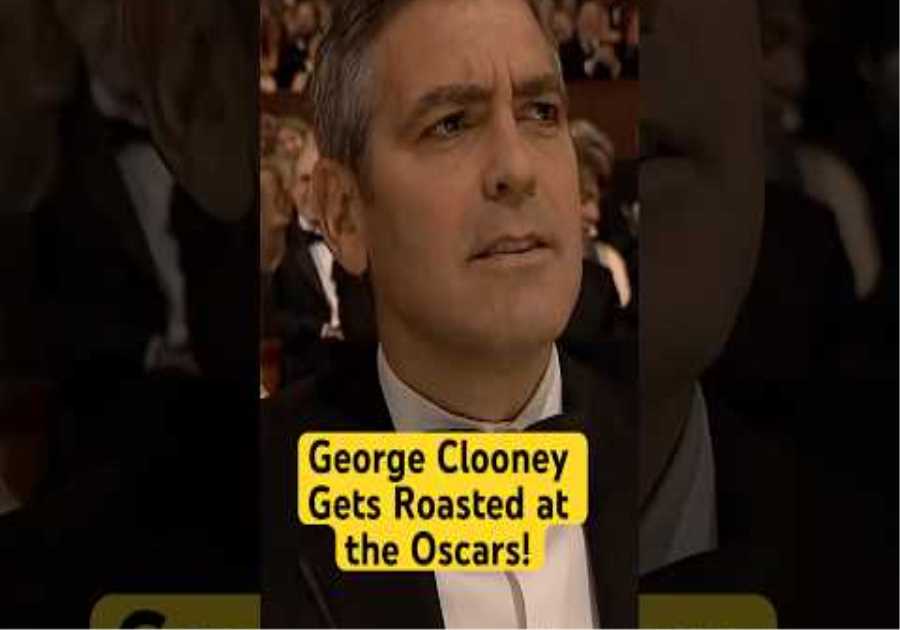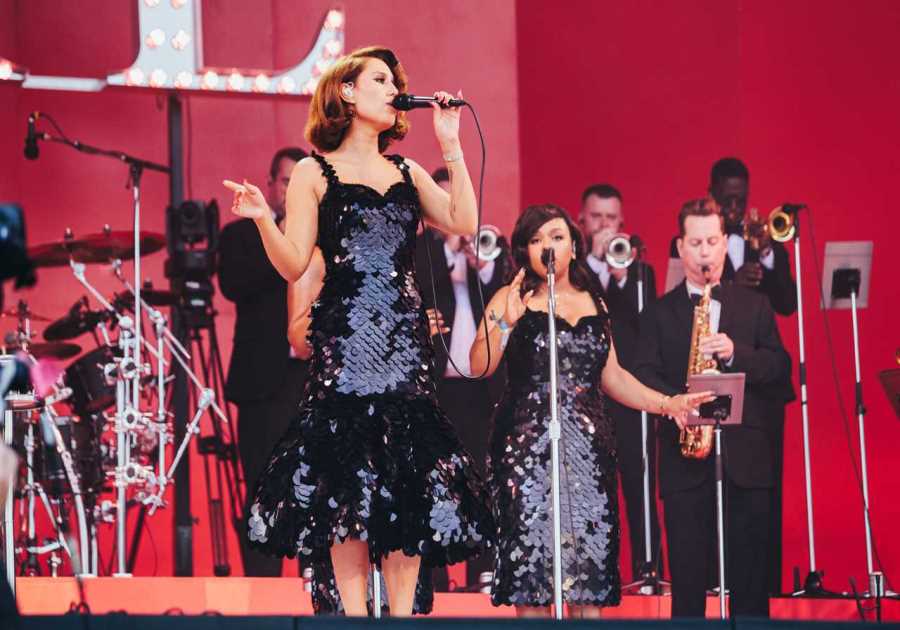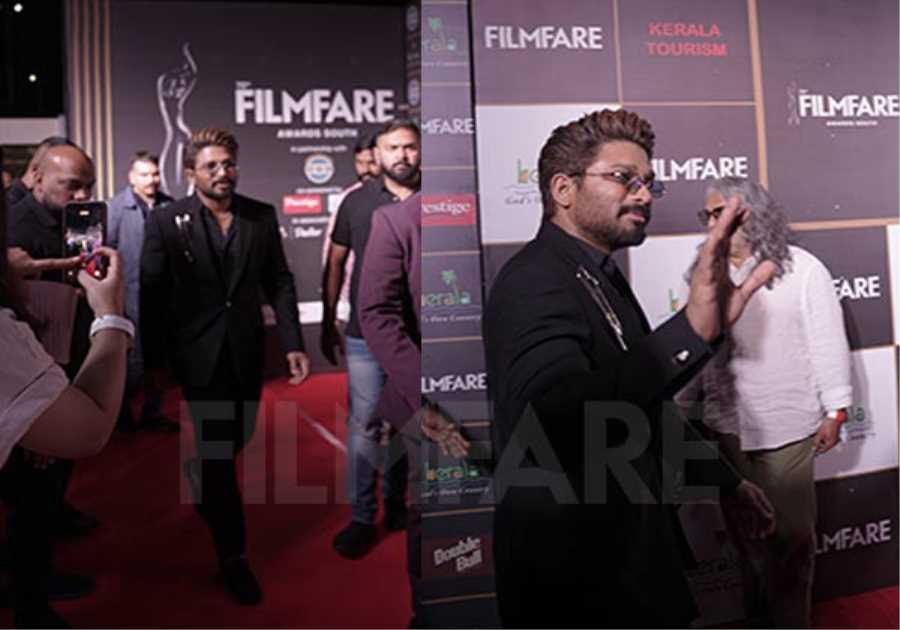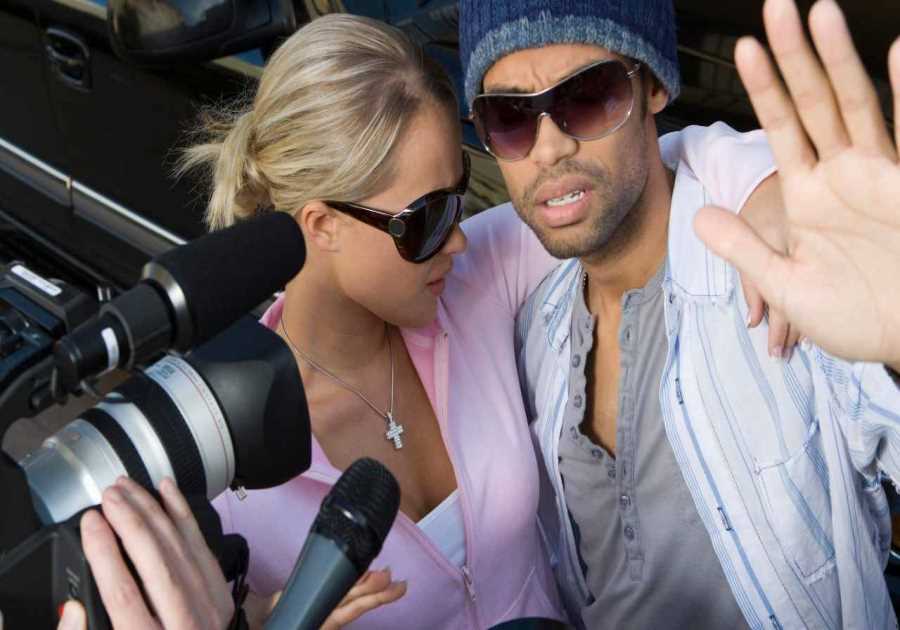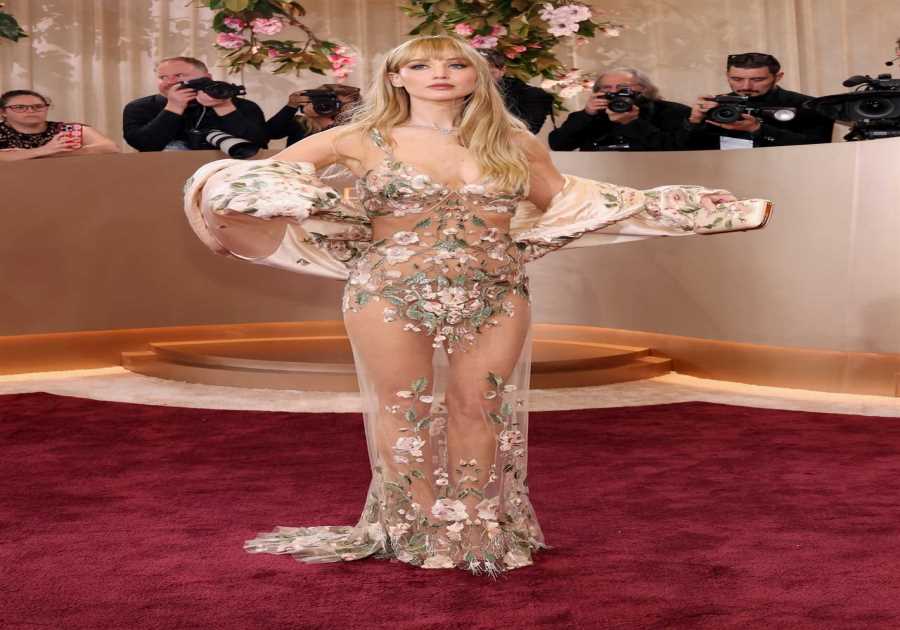Michael Jordan is an iconic basketball player who's won championships, gold medals, and beaucoup endorsement dollars. Bugs Bunny (Billy West) is an iconic cartoon, an endlessly confident trickster who smirks his way through all kinds of violent situations remaining cleverly unscathed. Bill Murray is an iconic comedy performer whose most well-known roles involve a kind of at-arm's-length emotional engagement, a state of elevation and spontaneity.
All three of these larger-than-life figures are positioned as the heroes of Space Jam, the 1996 live-action/animation hybrid. But I don't necessarily relate to a hero who comes to a film with a pre-existing level of invulnerability. The film tries its best to give these symbols a version of sympathetic humanity, be it with Jordan's underdog status as a struggling baseball player, Bugs' imminent danger about the Monstars, or Murray's pleading runner to be considered for the NBA already. But soaring above all three of these hypothetical heroes like a cartoonishly inflated parade float comes one, true hero of this tale. A man who's constantly fighting, working, and scrawling his way toward his goals. A man who's positioned as a bullied, working-class underdog from the jump. A man whose vibes I might describe as "if Uncut Gems also took place in the Looney Tunes universe."
I'm talking, of course, about Wayne Knight.
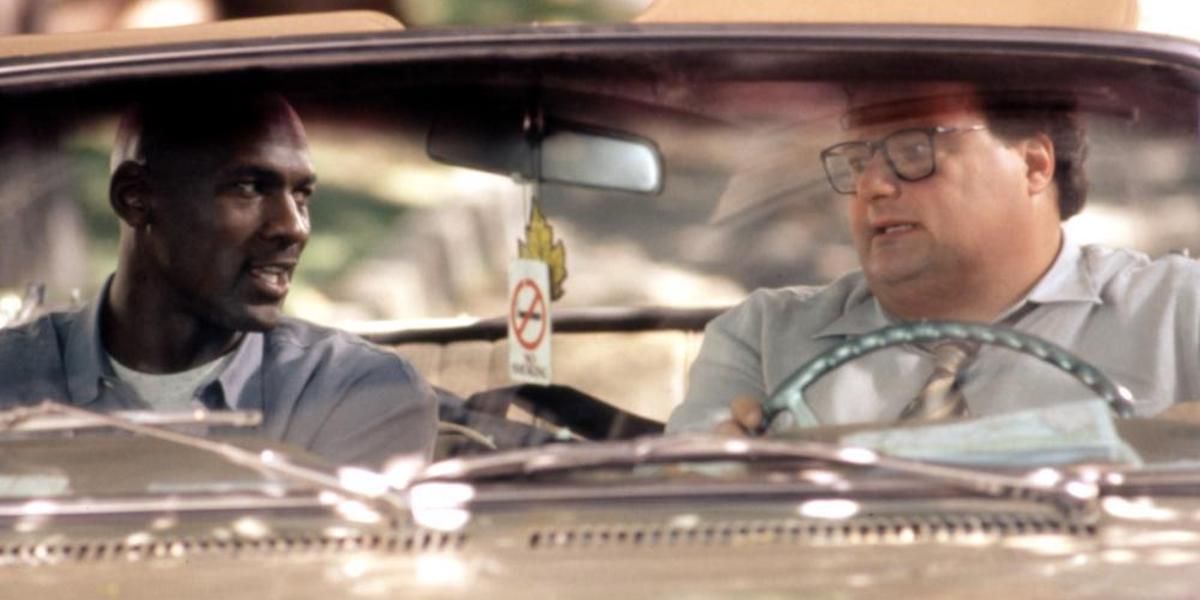
Knight plays Stan Podolak, a publicist and assistant whose goal is immediately stated and immediately clear: Help Michael Jordan with everything. Knight, such a gifted comedy performer adept at playing alongside his more muted human co-stars and his even loonier animated ones, dives into this desperate man's desperate goal with the committed force of an intentional belly flop. There's no need for debate, apprehension, or anything one step removed from a complete and utter "yes"; Poladek is ready to serve and ready to give up whatever it takes in service of this service. At one point, Poladek is so laser-set on his goal that he allows Jordan to accidentally call him "Sherm" instead of Stan if it will help Poladek help Jordan.
In a pivotal golf game scene (i.e. the one where Jordan is sucked into the Looney Tunes' world through a hole), Poladek doesn't join Murray and Larry Bird in their idle banter. He walks right up to Jordan, gives him golf advice, does his constant best to ensure he is a man of activating motion rather than pacifying stillness. Even after Jordan flies his way through the hole and out of our normal human existence, Poladek doesn't give up. Bird and Murray walk away making cool jokes about how these stakes don't ultimately affect them, even denigrating Poladek in the process. But Poladek gets on his hands and knees, scratches a huge hole in the dirt, lies to rich golfers about what he's doing, and delivers an impassioned monologue straight into the cup: "It’s Stan. I need you to come out now... I’d look pretty stupid if you didn’t show up."
This is the kind of hero I root for, I relate to, I crave success from. I want a hero's arc to go from A to Z and I want them to be constantly moving toward this positive change with verve. Jordan's kinda already at a Z; Poladek needs to meet him there posthaste. And in that posthaste movement comes endearing conflict, comedy, and capacity for change. Wayne Knight in Space Jam is effectively Jack Lemmon in The Apartment and I will not be walking this comparison back!!
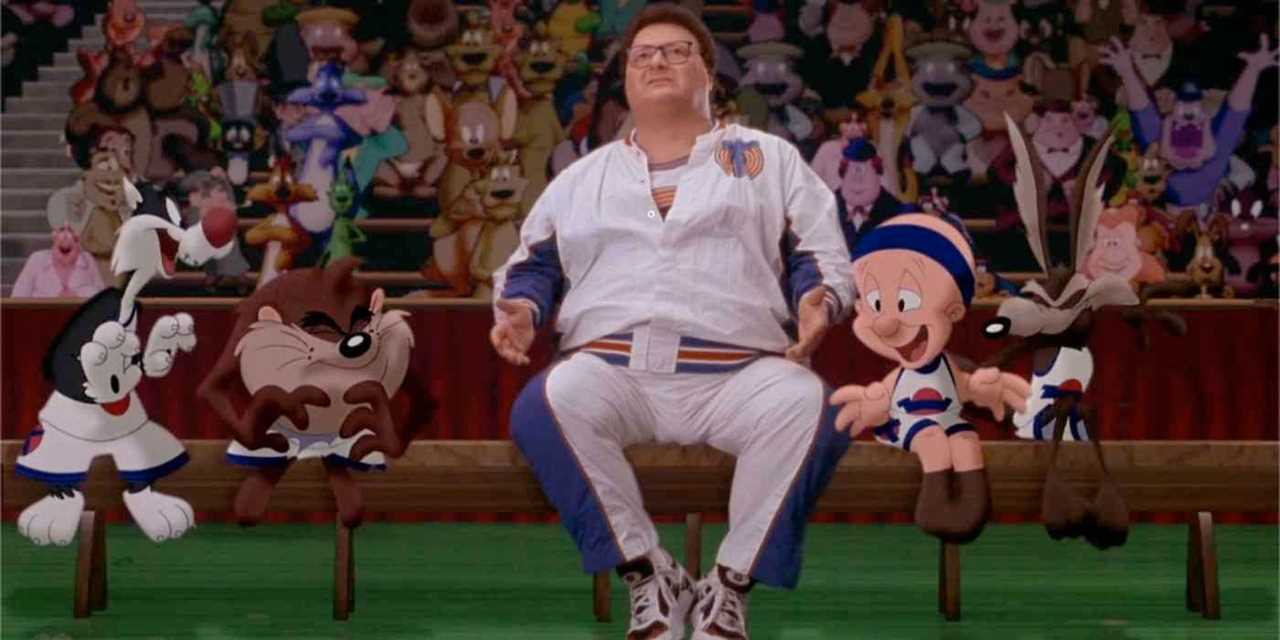
After Poladek gets his own dark night of the soul moment ("Wherever you are, I hope you’re happier there than spending time with me!" he screams to the golf hole among his mountain of dirt, lit with gothic flair by the moonlight), he finds his own way into the Looney Tunes' world. And goshdarnit, he's so, so happy to see Jordan, to see the end to his means, the triumph of his goal again. But like any great hero, his goal shifts from and through a physical, externally-motivated one ("I need to help Michael Jordan because other people tell me that's how I become a worthy human") to a spiritual, internally-motivated one ("I need to succeed at the game of basketball because I know that's how I become a worthy human").
To watch Knight's Poladek need to play basketball on the Tune Squad alongside Michael Jordan and the animated Looney Tunes characters is to experience cinematic pleasure. Contrasted with Jordan's premise-denying debate of whether he wants to play the game again (an arguably necessary move from a screenwriting structure perspective, but an undeniably silly one given he's that Michael Freaking Jordan), Poladek's immediate passion for the game tastes like lemonade after sand. We know Jordan's gonna play basketball and be very good at it; we need to know if Poladek will play basketball and be very good at it, especially as he committedly screams comedically inaccurate promises like "I may not be very tall, but I'm slow!"
First of all, Poladek is anything but "slow." Even when Jordan benches Poladek during the big game — a move that only strengthens the power of his character arc and the audience's insatiable need to see him play, already!! — Poladek moves quickly, wasting little time in turning potential energy into pure kineticism. At halftime, when everyone around him sinks further and further into despair, Poladek sneaks away into the Monstars' locker room, so eager is he to keep pushing toward goal achievement. Poladek uncovers a key plot point for his Tune Squad teammates — the Monstars stole the talents from top NBA players! — and gets another obstacle to overcome in his quest for heroic glory — the Monstars beat the absolute shit out of him! Jordan's biggest contribution to this end of act 2 pessimism into beginning of act 3 optimism is a passive one, spurred by Bugs' pitch of turning water into secret stuff. Poladek is too relentless a hero to let anything pass by. He takes.
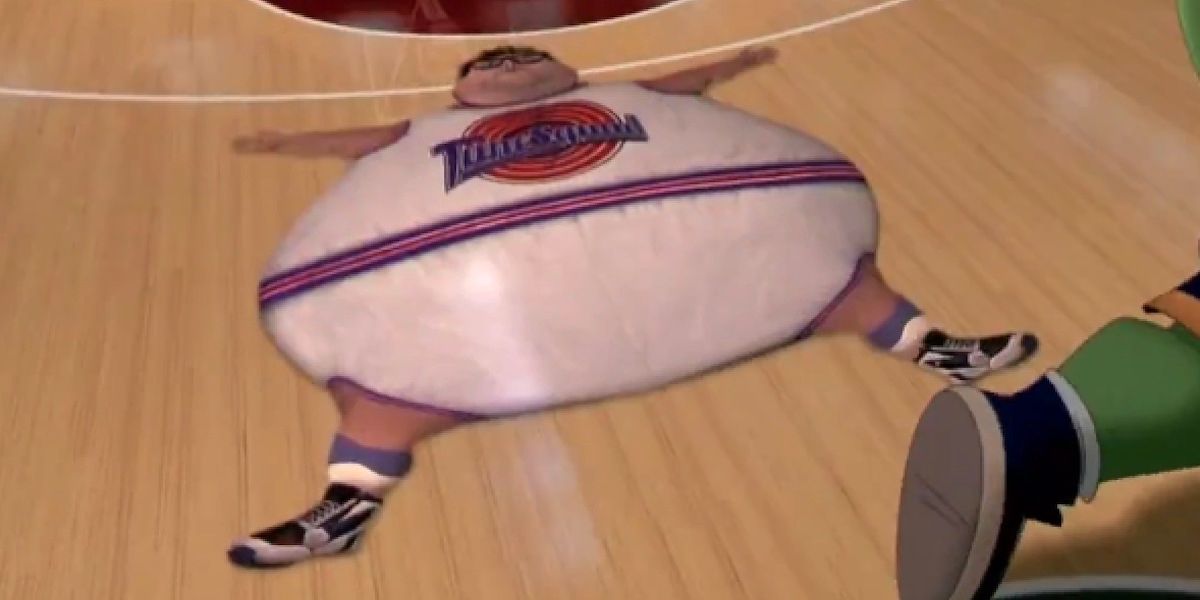
And when he finally takes the ball, look out. "Guard him? I'll smother him," Poladek growls as Jordan finally puts him in the game, and I believe him. Yes, every single Monstar dogpiles Poladek the moment he gets the ball, literally flattening him. But wouldn't you know it, his shot pops off even in this moment of physical despair, and friggin' goes in! Unlike the impressive-but-obligatory montages of Jordan making shots, this moment pops with such catharsis for Poladek. Not only has he helped out Michael Jordan in the most high-stakes moment possible (his external goal), but he's found purpose as a human being (his internal goal).
How does the film reward him? By inflating him into a stadium-sized balloon, then popping up in an extended fart sequence rendered in garish late-'90s CGI. Your knee-jerk reaction, as was mine, might be "How dare they. This man, this true hero of Space Jam, did everything in his power to achieve his goal and change as a human. And they make him shoot around the sky farting??"
Two things. One: Poladek will do anything everything in his power to achieve his goal, including throwing away the dignity of "having people remember his name." And in this inflatable fart gag, Poladek motivates Jordan (in yet another moment of Jordan passively learning something) for his climactic arm-stretching dunk. They could do that to Poladek because they're in the Looney Tunes' world. In this observation, Jordan realizes he can behave in cartoonish logic, too. Poladek helped Jordan yet again. He would be proud to have made that happen, farts and all.
And two: When the Tune Squad's spaceship lands on that Chicago baseball field to reunite our humans with our human world, Michael Jordan isn't the first person to step down to his adoring fans. Nor is it Bugs Bunny, nor is it Bill Murray.
It's Wayne Knight's Stan Poladek, a hero for us all.
-----------------------
By: Gregory Lawrence
Title: Space Jam 4K Review: Wayne Knight Is the Real Hero, You Fools
Sourced From: collider.com/space-jam-4k-review-wayne-knight/
Published Date: Fri, 16 Jul 2021 15:17:10 GMT
Did you miss our previous article...
https://ballerawards.news/movies/everything-coming-to-netflix-disney-plus-hbo-max-hulu-and-prime-this-weekend

